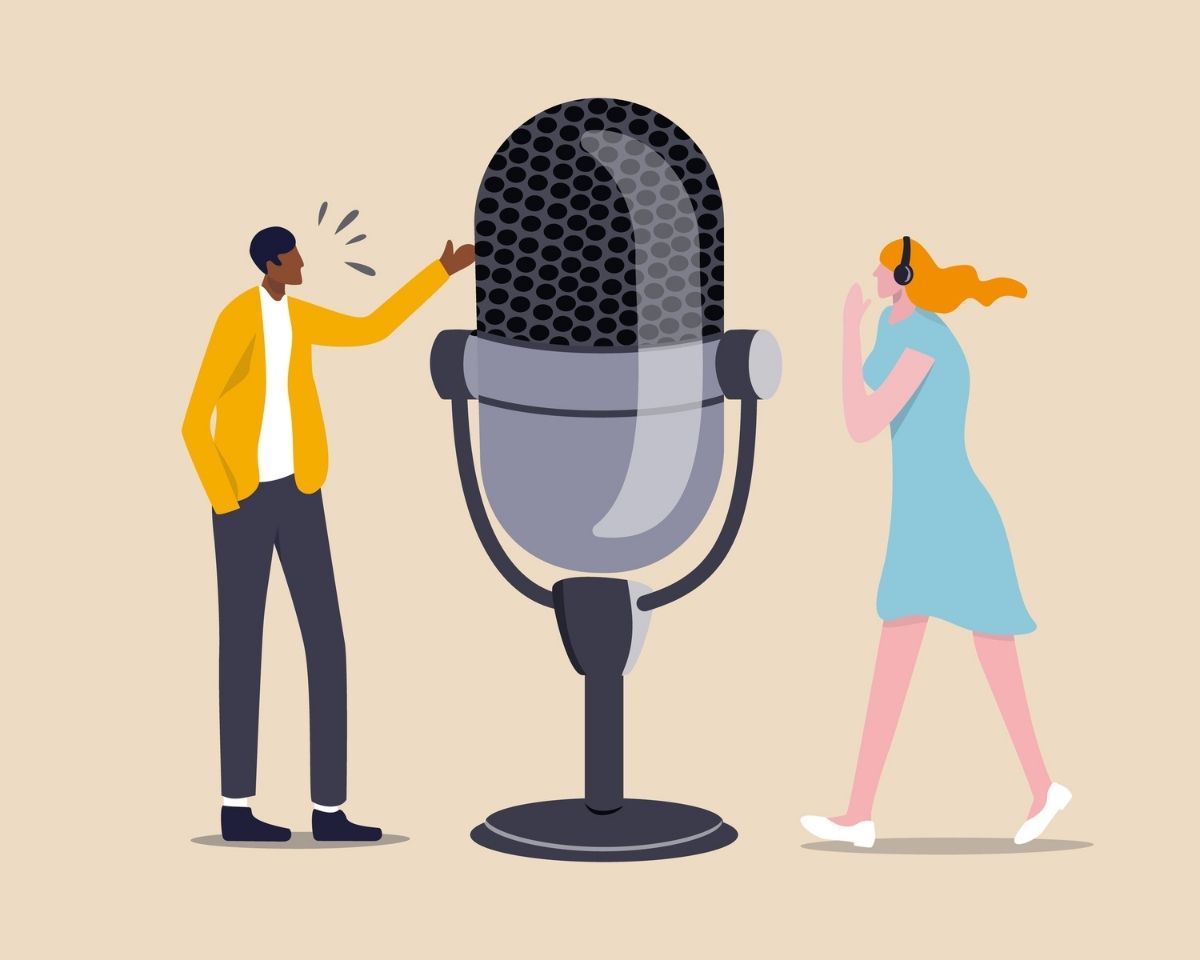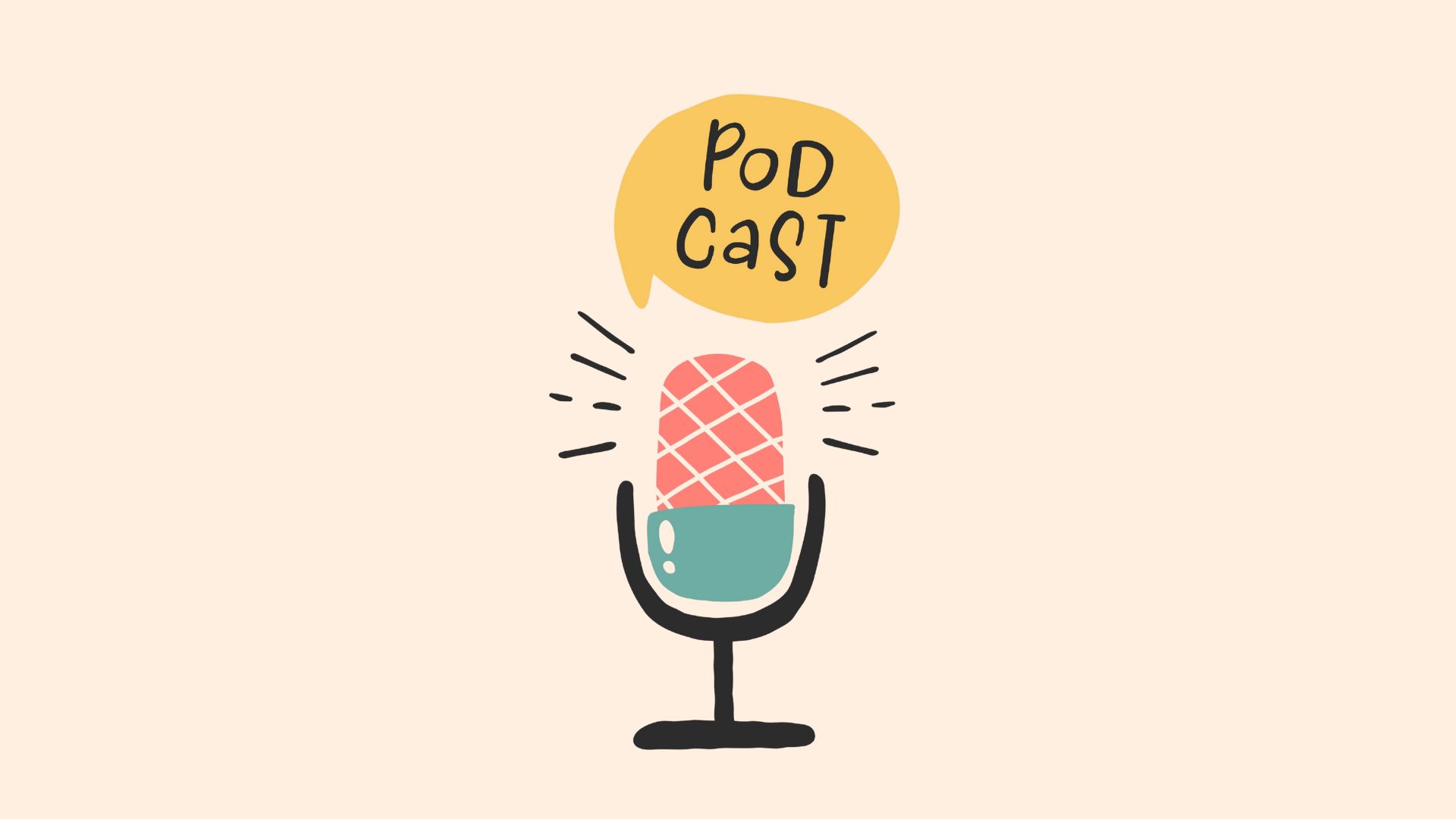Why writing a script for your podcast might not be a good idea
When you’re new to podcasting it’s natural to want to script everything because words on paper can feel like a warm security blanket when you’re sitting in front of a microphone.
But reading from a script on your podcast immediately distances you from your audience.
Why? Because you’re more focused on the page than you are on them.
So how do you feel secure and confident in your content without reading from a script?
Want help starting your podcast? Download my FREE ‘How To Start A Podcast’ guide.
Having a plan is important
Being prepared before you get behind the microphone is essential if you want your podcast to sound polished.
But there’s a difference between being prepared and being so wedded to your script you forget about the people listening.
And that’s what can happen when you’re reading from a script.
Ideally, you want to be as planned and prepared as possible but still leave plenty of room for things to happen in the moment.
What’s the best way to prepare?
If you go into the record with your entire show written out on paper, it’ll be impossible to connect with your audience and keep them engaged.
If you’re with a co-host it’ll be even worse because you can’t have an interesting and engaging conversation with someone who’s constantly looking at their notes wondering where they’re up to.
The best conversations sound fluid and like they’re unfolding in the moment.
Even if you’ve put a lot of time and preparation into thinking about what you’re going to talk about you still need to be in the moment when you press record.
If you’ve scripted parts of your exchange or over-practiced what you’re going to say you won’t be able to be present because you’ll be waiting for your next pre-prepared line.
And that’s never going to lead to engaging content.
Instead, it’s important to have the structure of your show written out, ideally in bullet points rather than paragraphs of text.
These bullet points serve as triggers that will remind you of what to say in the moment.
If you’ve done the prep beforehand you can trust your brain will deliver your content naturally, so you don’t have to rely on a script.
If you’re stuck to a script it’s easy to get lost
Going into a record with a list of bullet points means you’ll be able to quickly find your place if you get distracted.
If you go in with a full script it can take a long time to find where you’re at if you look up or lose your place and this can make you really flustered in the moment.
That’s ok if you’re recording by yourself and don’t mind starting again. But if you’ve got a guest or co-host with you it can really throw you off your game.
Ideally, you want to avoid this because to be a good presenter you have to sound cool, calm and in control.
And madly searching for where you’re up to isn’t the best way to do that.
How do I prepare for a show?
Whenever I’m presenting radio or a podcast I go into the record with a bullet-point list of trigger words.
If I’m interviewing, I’ll have a list of questions with keywords highlighted or in bold.
Basically, I want my notes to be so easy to read all I need to do is quickly glance down at the page to see where I’m going so I don’t need to lose contact with my guest or co-host for more than a fraction of a second.
Similarly, if I’m by myself I don’t want to be stopping and starting so I have a single person I’m presenting to in my mind and I try not to lose ‘pretend’ eye contact with them either.
Having notes like this means I can stay in the moment the whole time while still knowing I’ve got a clear idea of where things need to go on paper in front of me.
This ensures I don’t miss any opportunities for the conversation to follow an unexpected, more interesting path and I can really listen because I’m not distracted trying to find my place.
It also ensures that if there’s nothing more interesting to explore in the moment, or if we’ve exhausted a tangent or spontaneous topic, I can always come back to my plan and keep things moving on.
Don’t believe me? Try it and see.
To test the difference, record yourself reading a script and then presenting using only bullet points and listen back.
Try and put yourself in your audience’s shoes and pay attention to how reading distances you from your listener.
If scripting is a confidence thing remember you don’t have to release the first episode you record.
You can practice for as long as it takes to get comfortable working off a bullet-point list and then start releasing episodes when you feel like you’ve hit your presenting sweet spot.
Your listeners won’t know how many takes it took to get to that point!
They’ll just think you’ve always sounded that professional!
🎙️ Want to start a podcast but feeling overwhelmed?
Grab my free “How To Start A Podcast” guide or get step-by-step support inside my online course, PodSchool.
Got a question about podcasting? Send it my way so I can answer it on the podcast!













One Response
As I’m researching podcasts in my niche to be interviewed on I am able to easily pick out those that are reading scripts. I dislike the lack of audience connection. It sounds like they are reading an ebook to me and I tune out and click away.
With now many seem to be doing it I figured I was doing it wrong on my podcast lol Thanks for the back up that my easy notes are perfect and to go with the flow of a conversation.